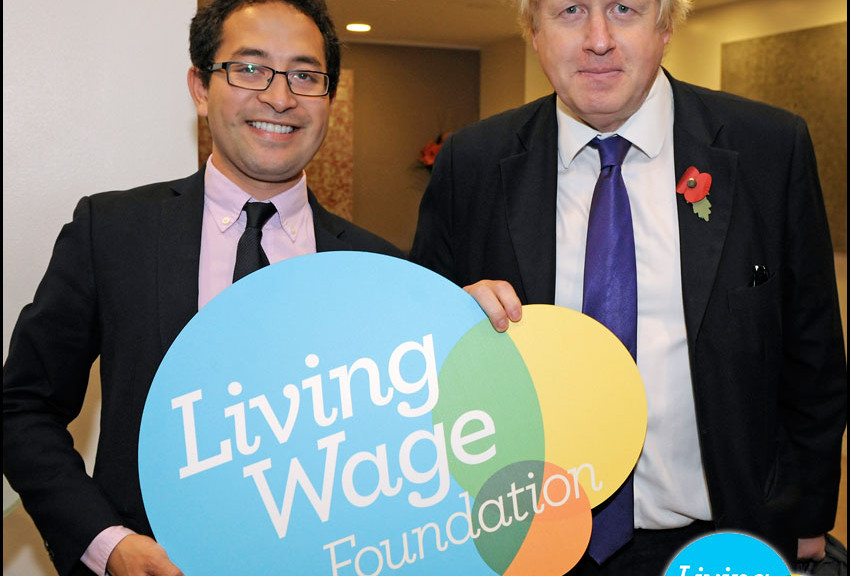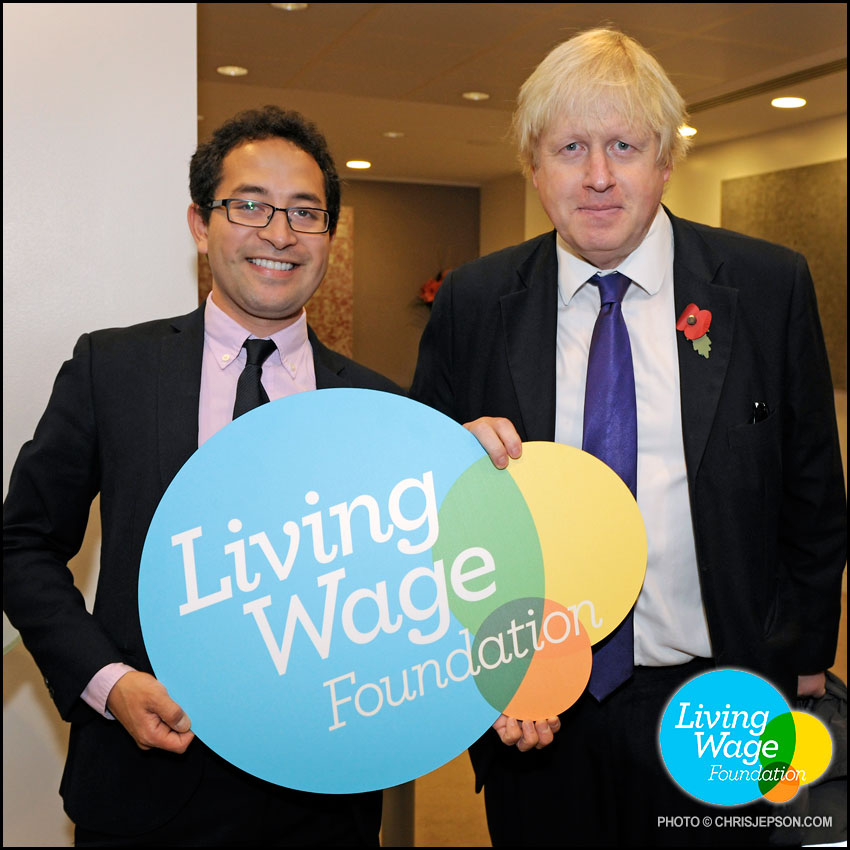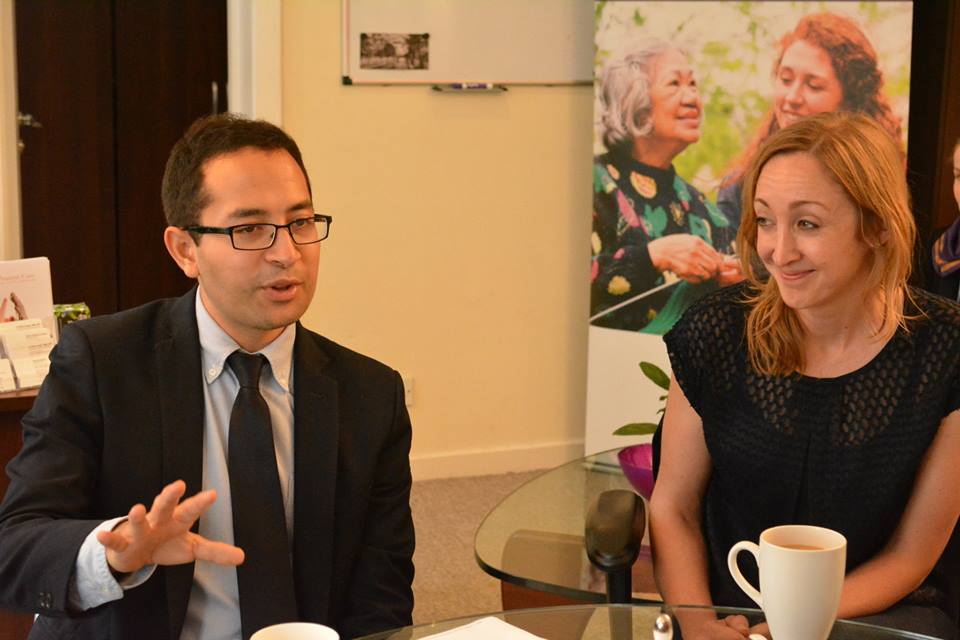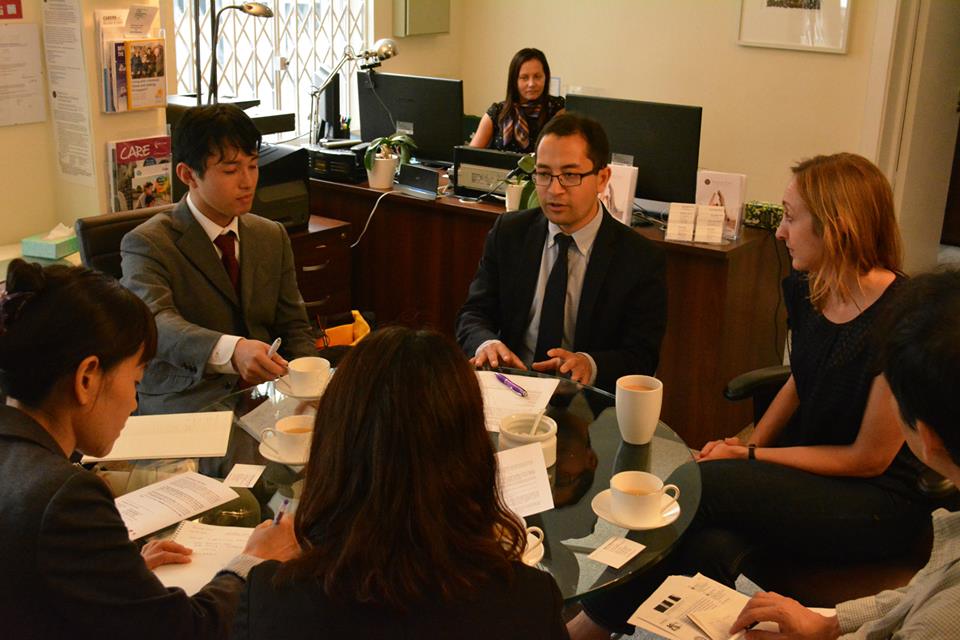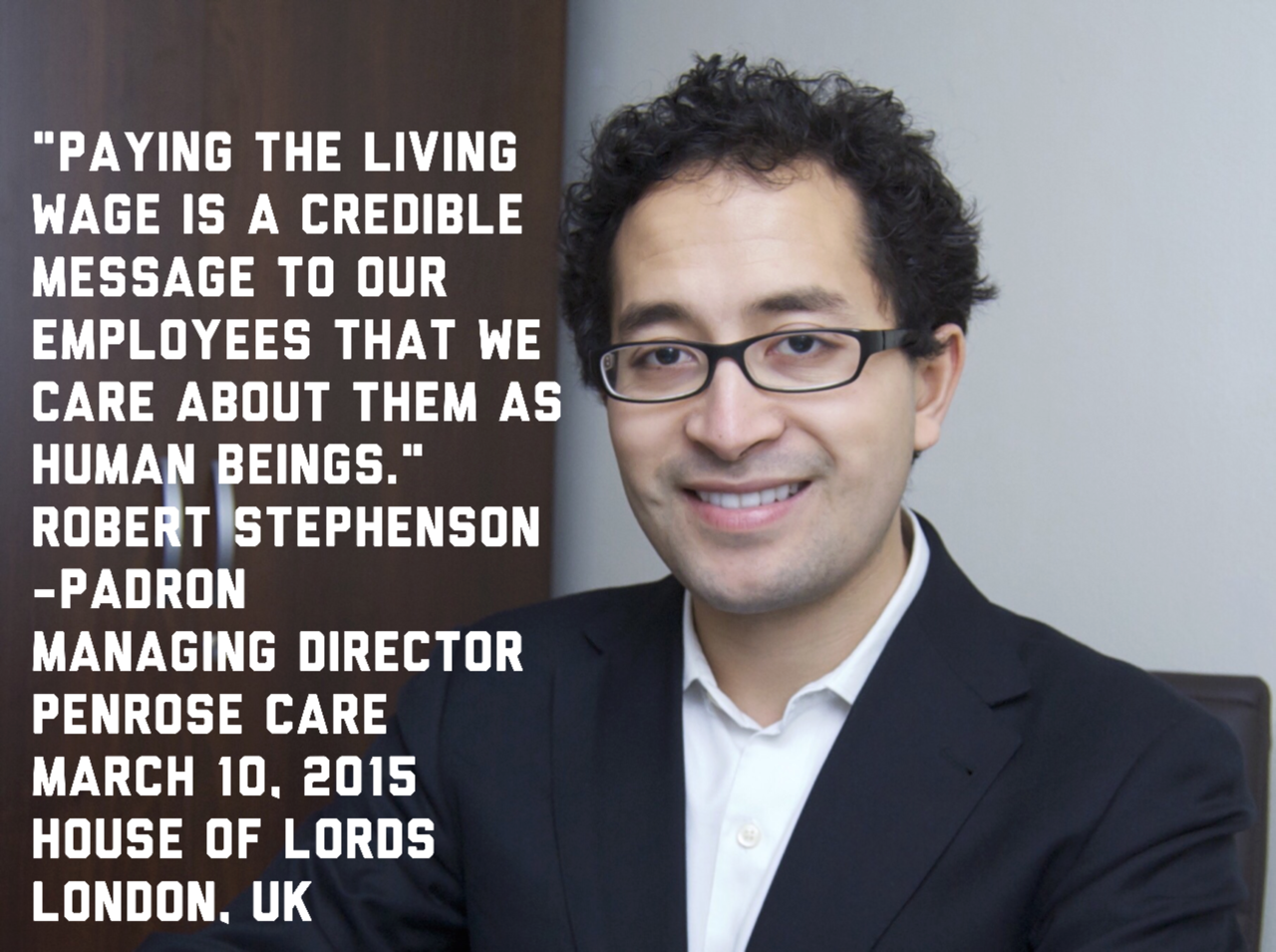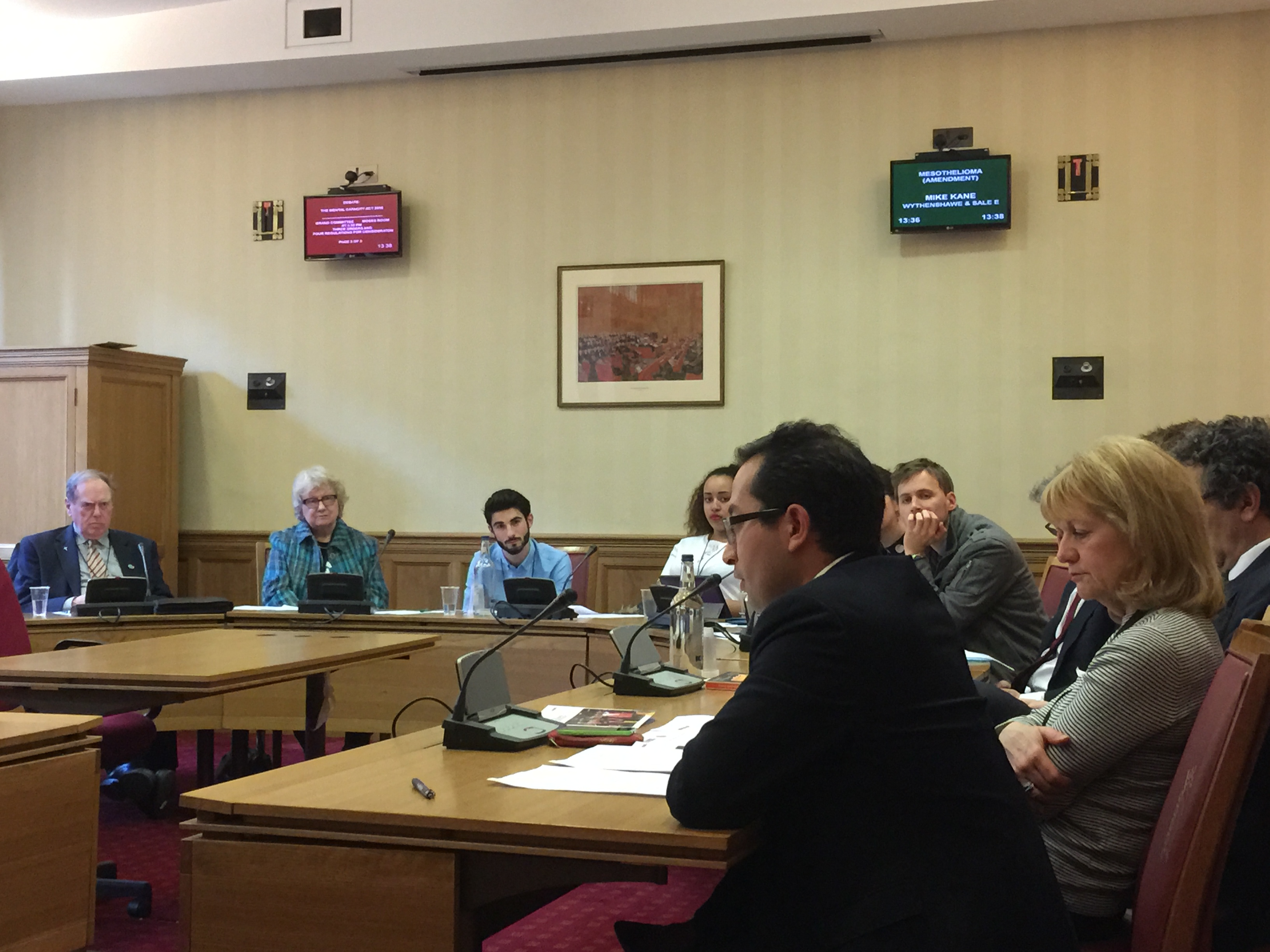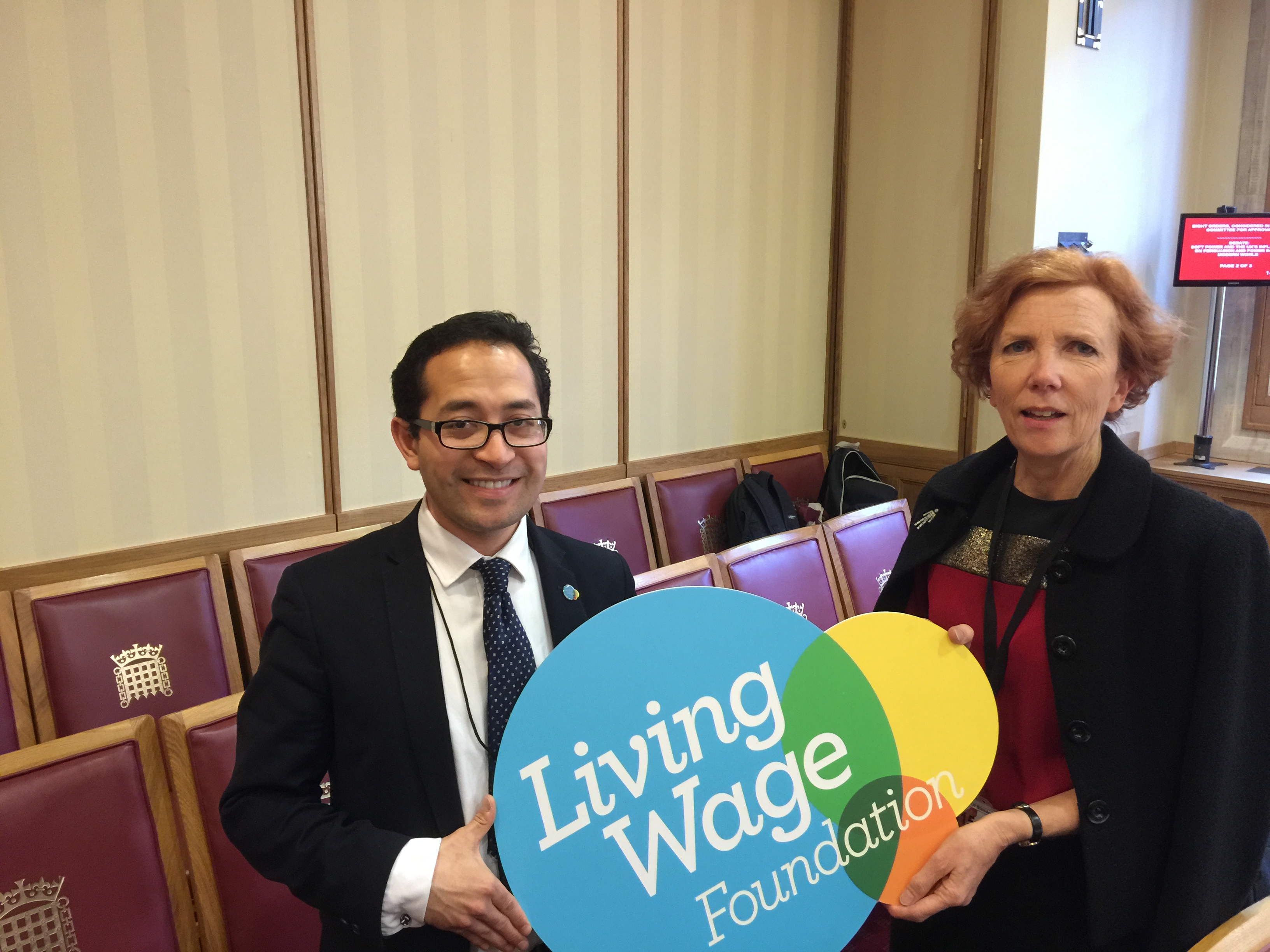Belsize Village, Hampstead, London, UK: Yesterday at the Houses of Parliament, Penrose Care’s managing director, Robert Stephenson-Padron, backed Independent Age, the older people’s charity, and former Care Minister Norman Lamb MP’s (Liberal Democrat) call for the establishment of an independent, cross-party Commission into the future of health and social care [1].
Mr. Stephenson-Padron was also joined by former Health Minister Stephen Dorrell (Conservative) and former Shadow Care Minister Liz Kendall MP (Labour). Independent Age’s associated campaign is called “Care for Tomorrow”.
Penrose Care managing director, Robert Stephenson-Padron, said:
“As the pioneer of ethical home care in the UK, Penrose Care often sees the great benefits of excellent health and social care as well as the terrible outcomes from mediocre to bad care. Instances of excellent health and social care need to become the norm, and we as a society need to figure out how to make that the norm now, as our ageing populations will only make existing challenges more daunting as time passes. Penrose Care commends Independent Age and Norman Lamb’s call for an independent cross-party Commission into the future of health and social care and we would be happy to assist the commission in its inquiries post its creation.”
Independent Age’s “Care for Tomorrow” campaign calling for the Commission follows new ComRes polling [2] that found:
- Four-fifths of British adults (81%) are concerned about the impact of an ageing population on the NHS and care services in Britain,
- Half of British adults think the level of service in the NHS (51%) and care services for the elderly and disabled (47%) have worsened over the past 12 months,
- Nearly two-thirds of Britons are not confident that the UK Government will ensure high standards in the NHS (61%) and care for elderly and disabled people (64%) in the future,
- More than four-fifths of British adults (86%) agree that people with direct experience of health and care services (like patients, doctors, elderly and disabled people) should be involved in deciding the future of these services.
The bill that would establish the commission, the National Health and Social Care (Commission) Bill, will have its second reading in the House of Commons this Friday, 11 March 2016. [3]
[1] Norman Lamb calls for cross-party commission on NHS and social care (normanlamb.org.uk: 06 Jan 2016), available online: http://www.normanlamb.org.uk/cross_party_commission_nhs_and_social_care
[2] Public support cross party action to fix health and social care (Independent Age: 08 March 2016), available online: http://www.independentage.org/news-media/latest-releases/2016-press-releases/public-support-cross-party-action-to-fix-health-and-social-care/
[3] National Health Service and Social Care (Commission) Bill 2015-16 (UK Parliament website accessed 10 March 2016), available here: http://services.parliament.uk/bills/2015-16/nationalhealthserviceandsocialcarecommission.html
ENDS
Media Contact
Penrose Care
Robert Stephenson-Padron
robert.padron@penrosecare.co.uk
0207 435 2644
Independent Age
Euan Holloway
Senior Media and PR Manager
020 7605 4286
07701 008248
euan.holloway@independentage.org
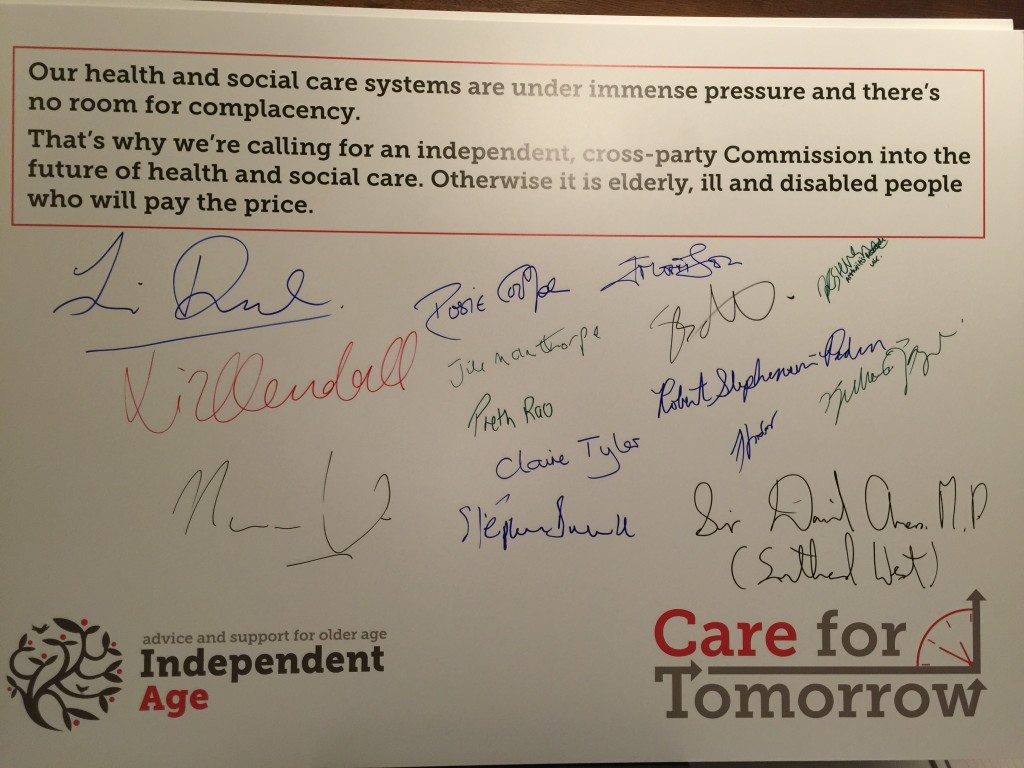
National Health and Social Care Commission establishment pledge board including Stephen Dorrell, Norman Lamb, Liz Kendall, and Robert Stephenson-Padron.
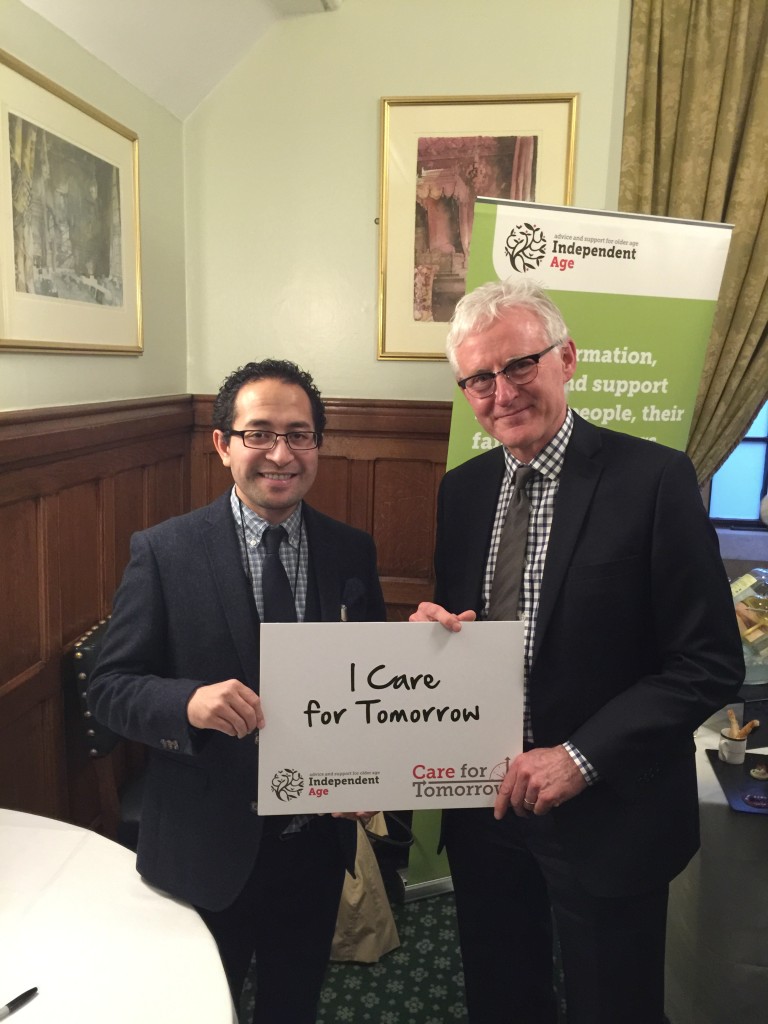
Penrose Care Managing Director with former Care Minister Norman Lamb MP at the Houses of Parliament.
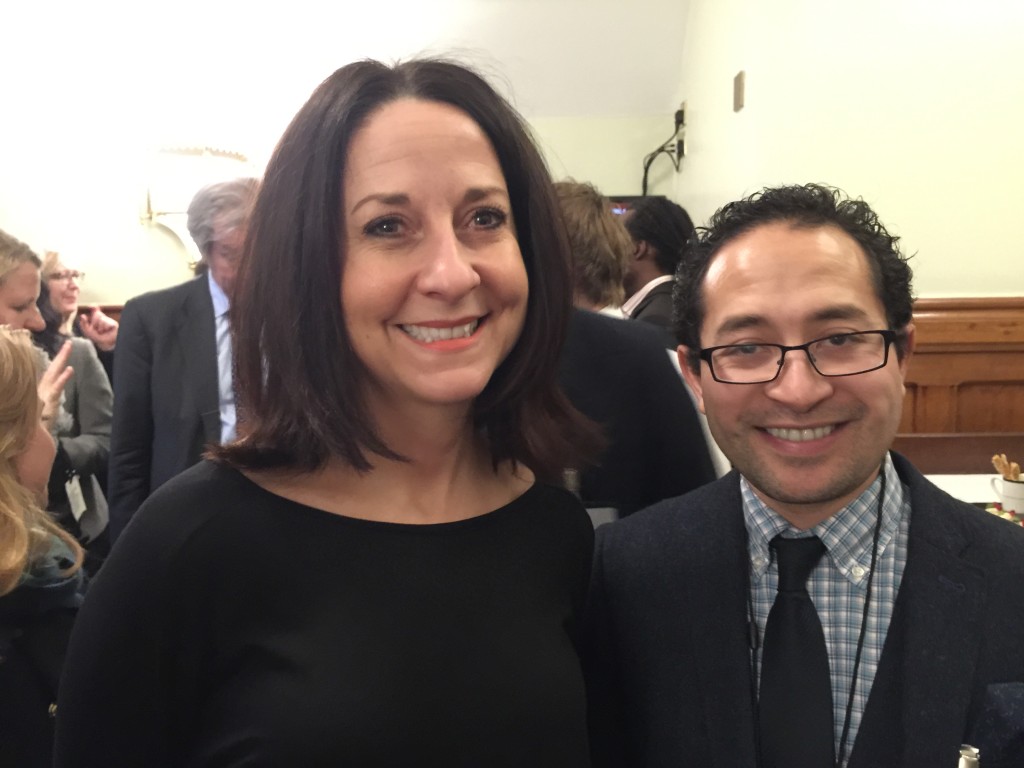
Penrose Care managing director Robert Stephenson-Padron with former Shadow Care Minister Liz Kendall MP.
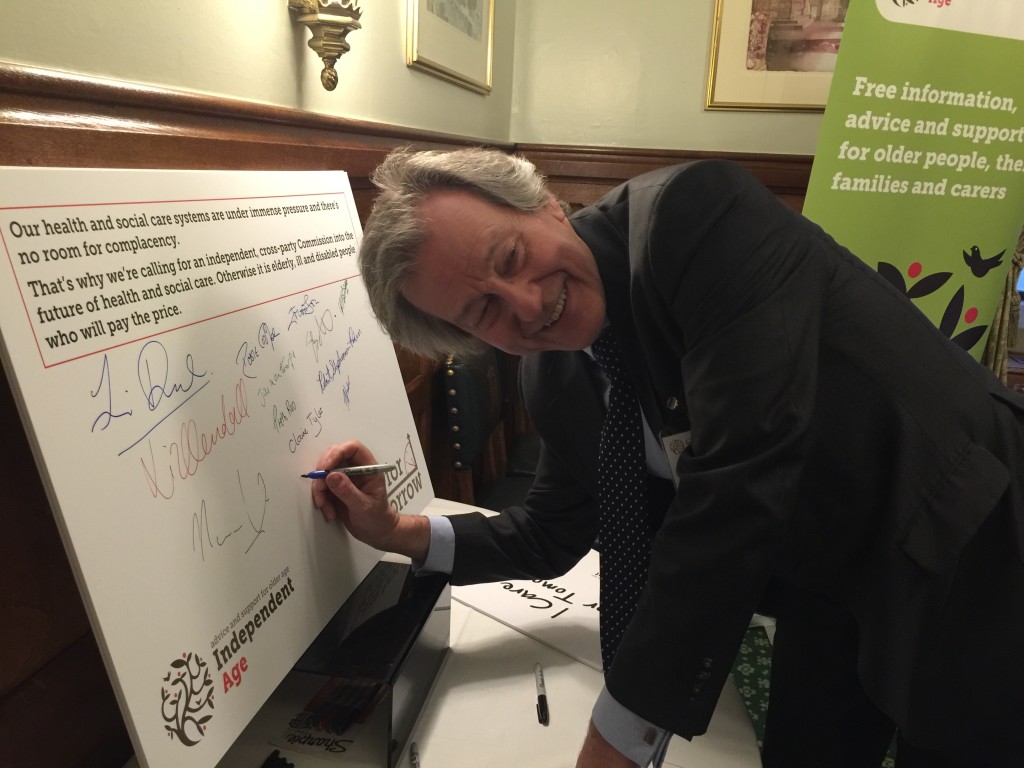
Former Health Minister Stephen Dorrell pledges support for Commission into the future of health and social care.
About Penrose Care
Penrose Care is an ethical provider of home care services London, United Kingdom to adults with disabilities and elderly persons, including those with dementia. The company operates upon a fundamental belief that to promote a caring workforce, the organisation itself must be caring. As the pioneer of ethics in home care in the UK, Penrose Care in 2012 became one of the first four providers in the country to become an Accredited Living Wage Employer and in 2013 the first independent sector provider to be compliant with Citizens UK’s landmark Social Care Charter.
Penrose Care’s ethical approach promotes higher quality social care workers and low staff turnover which in turn results in excellent care. Penrose Care is headquartered in Belsize Village, north London and was founded by Robert Stephenson-Padron, a healthcare research analyst, and Dr. Matthew Knight, a hospital consultant physician.










